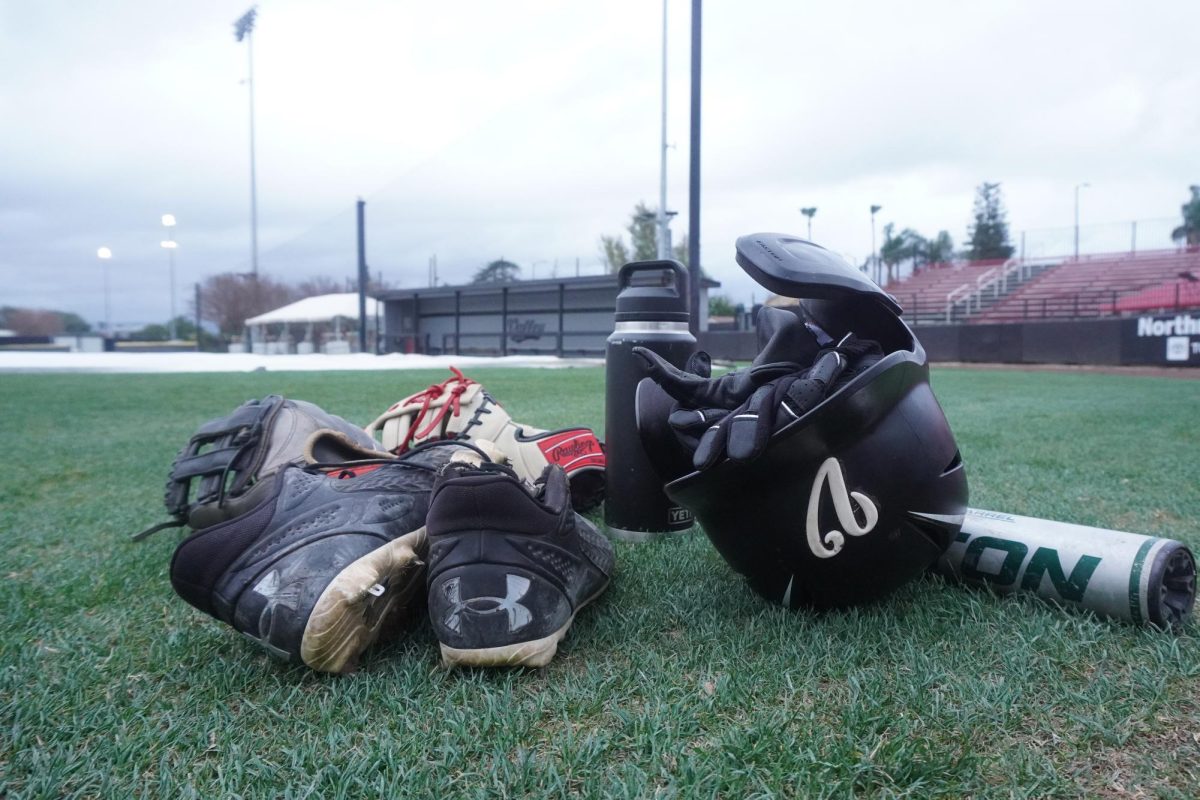Balancing school, training and a healthy lifestyle may get easier for CSUN’s student-athletes after the passing of an NCAA regulation which grants scholarship and walk-on athletes unlimited meals.
Brianna Elder, junior pitcher for the softball team, knows the difficulty of getting meals after practice. Elder said she and her teammates try to prep meals by bringing snacks like nuts and fruits to share. However, she said it is not enough because, “Just being an athlete makes you always hungry.”
Eating is one of the expectations outlined at the beginning of becoming a collegiate athlete, according to Elder.
“You can’t just wake up train, and train all day, without eating,” she said.
Elder believes the regulation will be beneficial to helping athletes stay nourished, but she does not want it taken for granted.
“You can’t just walk in and have steak every night,” she said.
She hopes people do not see free meals as an incentive to becoming a student-athlete.
“I hope people don’t want to become athletes for the sake of free food, rather than for the love of the game,” Elder said.
Robert Cid, a junior walk-on guard for the men’s basketball team, does not take his status as a student-athlete for granted.
Aside from housing and school, Cid said student-athletes’ biggest expenses are food, and he is happy the new proposal expands meals to walk-ons.
“At the end of the day, we [walk-ons] are putting in the same amount of effort in practice and weights,” Cid said. “So it would be nice to receive the benefit of having meals paid for even if we don’t receive the scholarship.”
Cid knows the difficulties of finding food on campus between weights, workouts and classes.
“The last thing you want to do when you get home is sit down and eat meal, but its something you have to do to maintain weight,” Cid said.
The walk-on said he tries to keep it healthy when he eats on campus, but usually ends up eating fast food.
“Trainers push us to eat healthy, but their are not a lot of options on campus when you need a quick meal,” Cid said.
Josh Greene, senior guard for the men’s basketball team, also hopes the regulation grants student-athletes more access to healthier meals.
The graduating student-athlete is not satisfied with using the student dining hall to provide meals for student-athletes.
“I’m not gonna walk way over there or drive out of my way for [Geronimos],” Greene said.
Greene wants the meals to be more structured and catered like the school-provided team meals he shares with the basketball team on gameday.
While Greene expressed disappointment with the new regulations coming into effect after he leaves, he was glad student-athletes can hold on to more of their money. He said the new regulation “Cuts out the cost of eating from our own pocket.”
Matadors women’s basketball head coach Jason Flowers does not know if this new regulation was a response to the public discussion on the welfare of the student-athletes, but he said it is a positive for student-athletes.
“Anytime rules are put in to benefit the student-athlete, it’s obviously a good thing,” Flowers said.
He said this should help students eat correctly in order to get their bodies stronger for competition.
Ryan Swartwood, assistant director of athletics for administration, said despite the media attention the proposal is consistent with the NCAA’s goal to reduce the size of the rulebook.
“The NCAA put working groups out to cut down some overburden language monitoring [institutions],” Swartwood said.
The regulation does not have any monetary backing from the NCAA, according to Swartwood. He said coaches and their athletic advisors will have to decide how the money for meal plans will be allocated from their budgets.
“The proposal requires us to sit down and have a conversation,” Swartwood said. He said administration is currently trying to determine a policy before the regulation is effective on August 1.
The new regulation, which is only a few sentences long, has “looser” language, allowing institutions to determine how they deliver meals to student athletes, according to Swartwood.
It is uncertain exactly how smaller schools like CSUN will institute the new regulation.
However, Swartwood said he is confident students will have “the necessary fuel to compete.”
Swartwood said the athletic department’s commitment to improving the welfare of the student athlete, “Here at CSUN, the welfare of the student athlete is our first priority. Currently, we strive to make sure students have optimal nutrition on game day.”
There was a publicized difference between a meal and a snack, but the new regulation moves away from that distinction, according to Swartwood.





